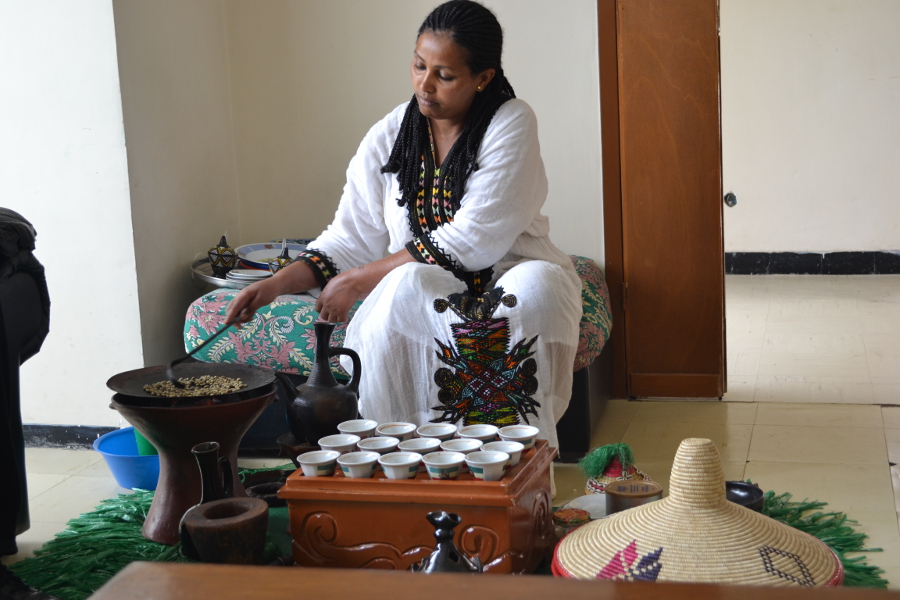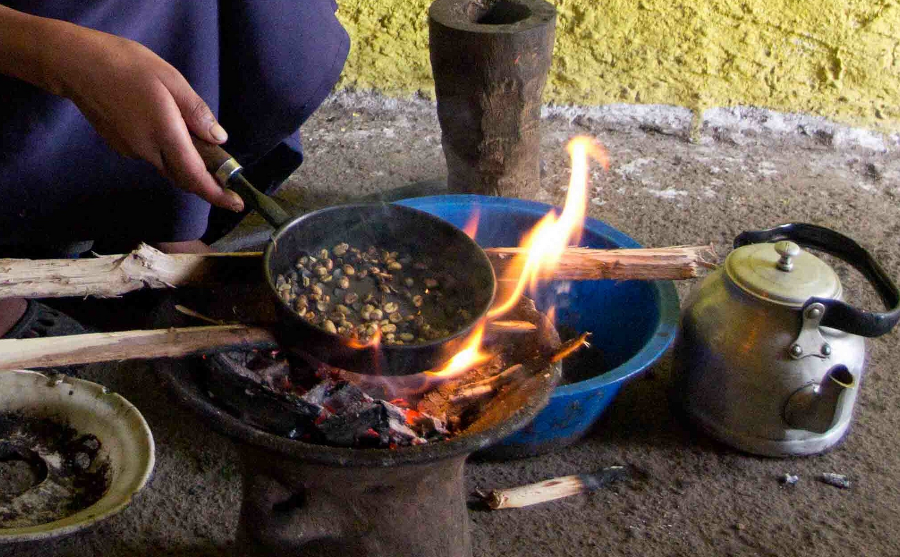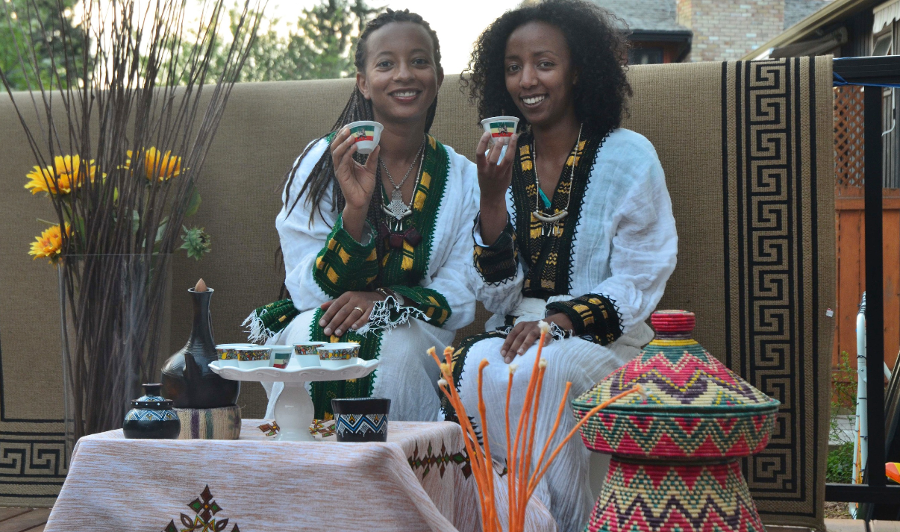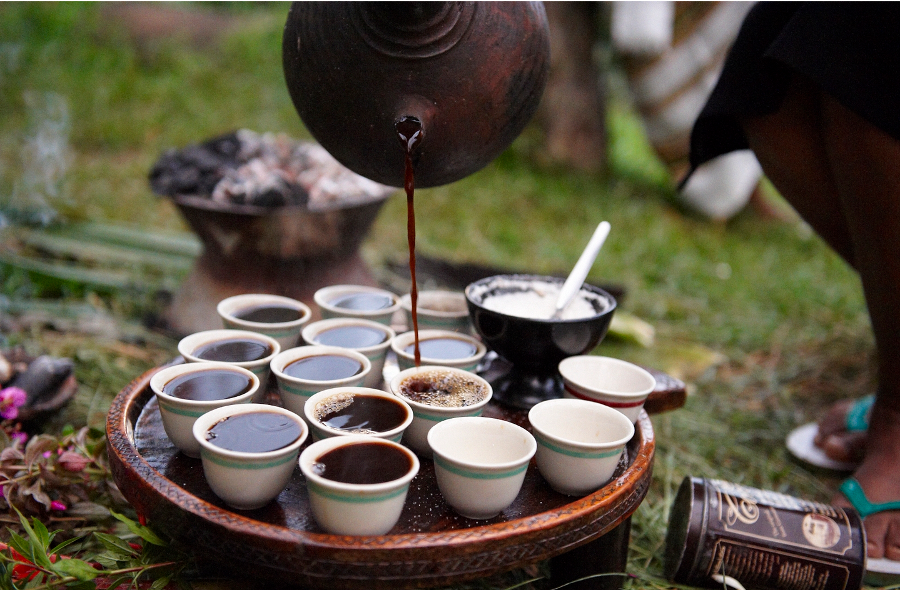The history of coffee goes at least as far back as the thirteenth century and its origin is shrouded in myth. In the Ethiopian highlands, where the legend of Kaldi, the goatherd, originated, coffee trees grow today as they have for centuries. The original native population of coffee is thought to have come from East Africa, more specifically from Ethiopia, where it was discovered more than 1,200 years ago. This is where the first Arabica beans were grown.
By the 16th century, coffee had reached the rest of the Middle East, Persia, Turkey and northern Africa. Coffee then spread to the Balkans, Italy and to the rest of Europe, to Indonesia and then to the Americas.
Coffee today has become a popular drink throughout Europe and the United States. But that almost didn’t happen, and may not have but for the Pope.

Coffee was not always loved. It has been feared, hated and misunderstood — sometimes in places known today for their love of the beans.
Coffee’s origins in Africa and the spreading of the drink through Muslims to the North did not sit well with many Europeans, especially Catholic priests, according to the book “Coffee: The Revolutionary Drink for Pleasure and Health.” The book states that some Christian priests went quite far with their objection and “denounced it as an invention of Satan.”
The logic was convoluted. As the book explains, these Christian priests in Europe believed that “Muslims worshiped the devil and that the devil forbade his followers from drinking wine, as that drink was reserved for those who followed Jesus. So the devil provided coffee, instead.”

When coffee arrived in Europe in the 16th century, clergymen pressed for it to be banned and labeled Satanic. But Pope Clement VIII took a taste, declared it delicious, and even quipped that it should be baptized. On the strength of this papal blessing, coffeehouses rapidly sprang up throughout Europe.
Ultimately, the question made its way up to the Pope. According to Yale Global, a publication of Yale University’s Center for the Study on modern Globalization. Pope Clement VIII, in 1600, not only okayed coffee’s use, but also endorsed it. Yale Global asserts that Clement VIII’s decision was based in pragmatism — he appreciated the notion that coffee could “help sober a population whose fluid intake was largely alcoholic beverages,” and mental_floss notes that the Pope considered (jokingly) having the drink baptized.
But legend has it that Clement VIII’s interest in the bean was also a personal one. Clement VIII sampled the drink himself, and told his advisers that “this Satan’s drink is so delicious that it would be a pity to let the infidels have exclusive use of it.”

Either way, the Christian Church ended the ban on coffee — something for which many today are certainly thankful.
Coffee is a beloved commodity throughout Europe now. Not everyone was pleased, however. In Prussia, King Frederick the Great staunchly forbid coffee drinking in 1777 because he thought it was impacting beer sales. Throughout the 18th century, women in Europe rallied against the drink, which they thought was causing their men to become impotent – a National Geographic report.
But the continent was already addicted. And once people are hooked on coffee, it’s hard drug to beat.











From one “drug” – alcohol- to the next – coffee. And then to the next… that seems to be what keeps people in the world going. It’s only that when it’s convenient for the ruling powers to label it illegal or immorality that the plebs are supposed to curb their appetite for natural pleasures.
Coffee would hurt beer sales: that’s exactly what people in the West are saying about Marijuana right now. Why does everything have to make billionaires a profit? Because capitalism says so.
Interesting article on coffee and this reminds us too often of the interests of the powerful few who seem to control every aspect of our lives.
The problem with capitalism is not capital itself. Capital may be a good thing. But inherent in the idea of capitalism is the idea of the ‘protection of capital’. There has never been a society that has truly allowed the free flow of capital ad infinitum – that would be the purest form of capitalism as an idea – and that does not exist, not in the US nor in any part of the world.
Hence, real capitalism is all about keeping capital in the hands of the ‘preferred’, whomever they may be. That undermines the ideals tooted by the lovers of the system itself, and thus renders it nonfunctional in the long term for any given society.
You can’t be fooled, if you believe in capitalism, you must accept the reality of it – a few will eventually own everything. That is a painful fact adherents to the belief must bear.
But people don’t have to accept capitalism nor even capital, especially when the ideals of the powerful few – that is, the few who have amassed all the capital – become diametrically opposed to the set of ethos held by the majority. For example, when they refuse to invest in the people, in social infrastructure, in legalizing marijuana, and ensuring equality under the law, etc.
Once the elite few have gathered the threshold capital needed to control everything, there is only one sure way of taking back control of our lives. People must refuse capital, that is, strip the elite few off their powers!
Grow your own weed. Brew your own bear. Plant your own maize. Build your own house! Move to the country! Alas, how many are prepared to do just that? So, we shall waste our lives trying to change a system through political means because the powerful continue to tell us so – ‘things are getting better.’ Really?
The trade in coffee has become an exclusive foretaste of European and American companies. They will not allow African firms distribution rights in Europe or America. They don’t allow it for South American coffee firms neither. And they want to talk about fair trade. Fair trade is when other firms outside of the west circle of privilege can allow equal competition from firms outside of the circle.
Coffee has been an ritual/ceremonial drink in Africa 5,000 years before Europe was born.